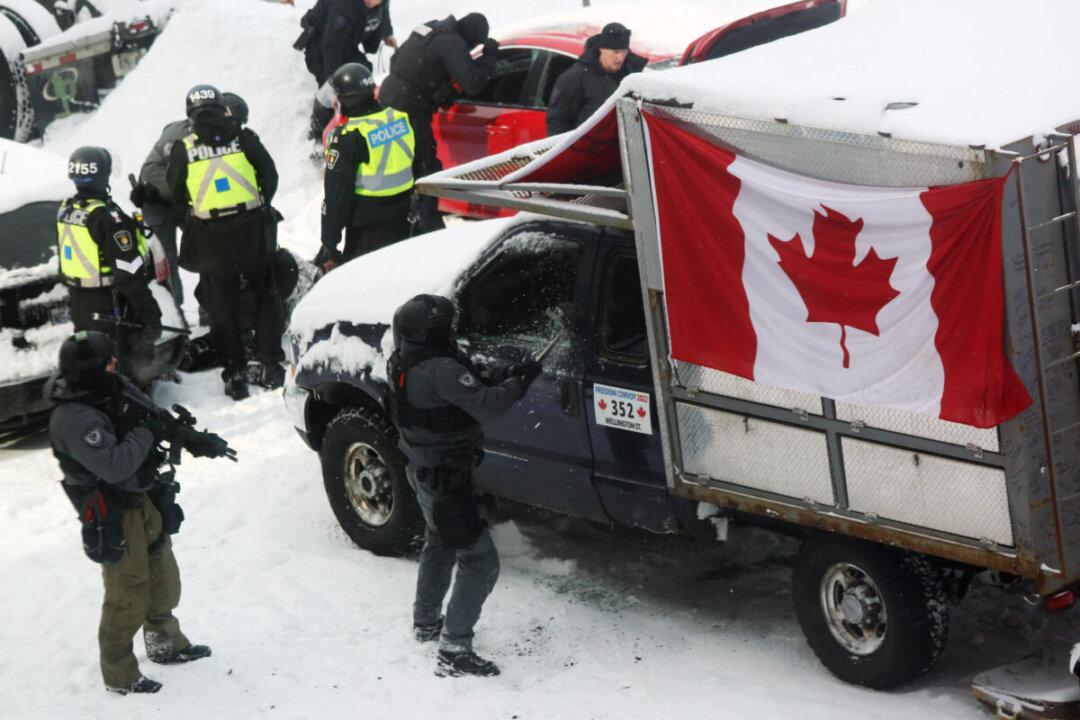RCMP officials say the freezing of the Freedom Convoy protesters’ bank accounts without a court order was a necessary and targeted measure during the public order emergency, but opposition MPs are questioning why existing laws weren’t applied.
RCMP Assistant Commissioner Michel Arcand told the House Finance Committee (FINA) on March 7 that the freezing of accounts “enhanced the effectiveness of law enforcement’s investigation“ pertaining to border blockades, and helped bring a ”peaceful and timely end to the public emergency.”





